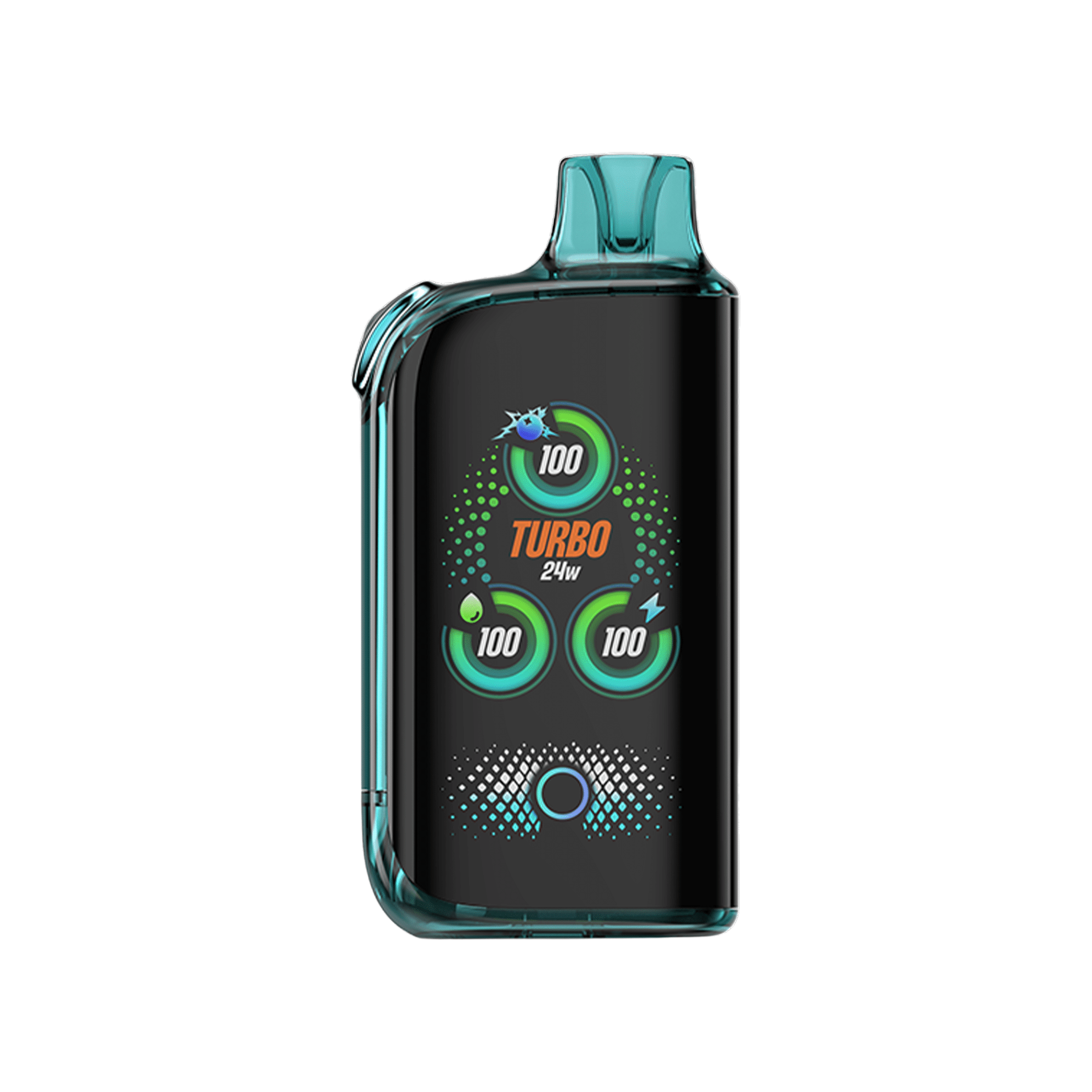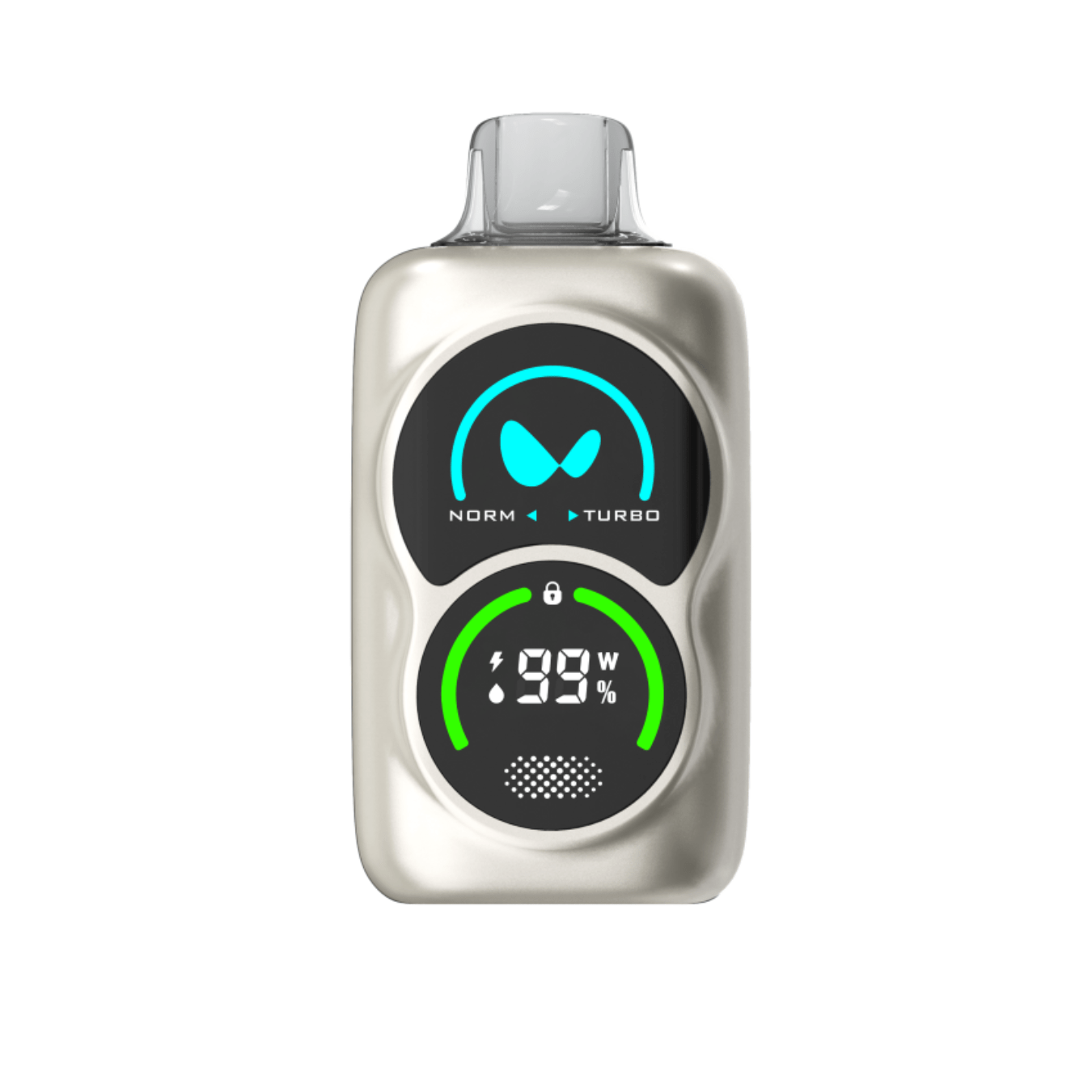Does Vaping Cause Anxiety?
In today's society, vaping has become a popular alternative to traditional cigarette smoking. However, the potential impact of vaping on mental health, specifically anxiety, is a growing concern and debate.
Below, we aim to shed light on this issue, examining whether vaping could relieve stress or trigger anxiety. We'll delve into the scientific connections and the potential implications on mental well-being.
Does Vaping Impact Mental Well-Being?
Vaping and mental well-being can be deeply interconnected in many ways. Not only do some people notice a mental impact of their vape usage, but often, the reason people begin vaping is related to their mental well-being – especially where young adults are concerned.
The American Psychiatric Association notes that the most common reason youth continue to use e-cigarettes or disposable vapes is because they feel stressed, depressed, or anxious.
Some people may experience relief from these feelings when using a vape, whether disposable or refillable. However, there are also negative mental health impacts to be acutely aware of.
Mood and Depression
Beyond anxiety, vaping has also been linked to negative impacts on mood and brain function. Research from the Addictive Behaviors medical publication found a clear link between depression and frequent vaping.
The association seems to go both ways, with people turning to vaping as a way to cope with feelings of depression and vaping potentially leading to feelings of depression. Interestingly, a 2017 study of high schoolers in Los Angeles found that students who used e-cigarettes more frequently were associated with higher symptoms of depression, feeling sad, and crying spells.
One concern is that, by turning to vapes as the only coping mechanism, people may miss out on engaging in other healthy coping mechanisms, including physical activity, social connection, and meeting with a mental health professional.
ADHD
Another aspect of mental well-being that may be impacted by vaping is ADHD symptoms among those previously diagnosed with the disorder.
Vaping has also been found to lead to an increase in ADHD symptoms and impulsive behaviours. Alternately, a study by the University of California, San Francisco, and the Virginia Commonwealth University found that adolescents with ADHD symptoms predicted a higher likelihood of engaging in e-cigarette use.
The cyclical relationship between using a vape and mental health is still being studied and not well defined. As more time passes and more studies are conducted, we should learn more about how vaping impacts mental well-being.
Vaping and Its Effects on Anxiety: What’s the Link?
Are you wondering whether vaping can cause or increase anxiety – or whether it can decrease it? The truth is that it can go both ways. Vaping can become a maladaptive coping mechanism for anxiety, meaning efforts to reduce anxiety can wind up increasing it.
While the data doesn't necessarily represent causation or correlation, one study of 3,500 college students found that those who vape were much more likely to have mental health histories, including anxiety. But did these vapers start using vapes because they were anxious, or was it the other way around?
The vape devices don't seem to be the culprit. Instead, nicotine is likely the cause of any anxiety associated with vaping, as studies have proven that nicotine alters how dopamine moves throughout the brain, often increasing symptoms of depression or anxiety and increasing a person's sensitivity to stress.
One study found that while, at first, nicotine can act as an antidepressant and an anxiolytic, this is often temporary. It can eventually reverse and increase anxiety and depression, especially after withdrawal.
Is Vaping a Relief or Trigger for Stress?
While some people may initially find that using a vape helps to relieve their stress and anxiety, it is essential to recognize that there are potential negative impacts on mental health associated with the habit. Vaping can become a dependency that increases anxiety, stress, and depression when trying to quit or reduce usage. Vaping can pose additional risks as well.
A study published in the Human Psychopharmacology: Clinical and Experimental states that nicotine can trigger the production of cortisol, a hormone released during times of stress. This information suggests that using a vape device may be a potential trigger for stress.
This experience isn't the experience that everyone has, however. Some people may find the act of vaping overall relieving their stress levels, especially for those who may have previously smoked cigarettes. Using vape devices is often seen as a less harmful alternative to smoking cigarettes, and many people choose to vape as a smoking cessation tool.
Final Thoughts
Vaping and mental health are two things that can certainly impact one another, and it is crucial to understand the potential impact of vaping on anxiety, stress, and overall well-being.
Research on the topic doesn't represent everyone's individual experience, so paying attention to your feelings and moods is critical to identifying any potential anxiety caused by vaping. It's also possible that some people may notice an opposite, positive impact. Everyone is different.
While some people may find relief from stress when vaping, it's crucial to be aware of the potential negative impacts on mental health. If you're struggling to manage anxiety, it’s important to take your mental health seriously. Seek healthy coping mechanisms and get professional help if needed.
If you’re a vaper looking for a new disposable vape, you’ve come to the right place. At WAKA, we have a wide selection of options, including plenty of flavours, for vapers to choose from so you can find your perfect fit. Check out our full collection today to find the perfect vape for your needs.
Also in Vape Knowledge

Top Refreshing Vape Flavours – From Mint to Exotic Fruits
Refreshing vape flavors keep every session exciting, from crisp mint to bold tropical blends. In 2025, WAKA leads the Canadian market with high-capacity devices like the Infinity Lean 20K, DUO, and Fasta Blast 30K—each packed with flavor variety and value. With multi-buy promotions and fast delivery, WAKA makes it easier than ever to explore refreshing vape flavours and discover your next favourite.

How to Order Vape Online with Fast Delivery
Ordering vapes online in Canada has never been easier. With fast delivery, wide flavor options, and multi-buy savings, WAKA makes it simple to get premium devices like the Infinity Lean, DUO, and Heavy Hitter delivered straight to your door. Backed by trusted shipping, tracking, and promotions, WAKA’s online store is the go-to choice for adult vapers seeking convenience and value.

Why Disposable Vapes are Often the Vape of Choice
Disposable vapes have quickly become the vape of choice in Canada thanks to their portability, ease of use, and wide flavour variety. WAKA leads the market with options like the Infinity Lean 20K, DUO, and Heavy Hitter 30K—delivering long-lasting performance at affordable prices. For vapers who want convenience and value, WAKA disposable vapes stand out as the best choice.











